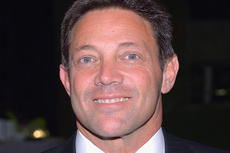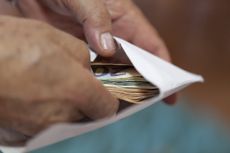Great frauds in history
-

Great frauds in history: Harry Marks and his dodgy tips
Features Harry Marks used his position as the owner of a financial newspaper to con investors into putting their savings into a non-existent gold mine.
By Dr Matthew Partridge Published
Features -

Great frauds in history: Tsuyoshi Kikukawa and Olympus
Features Tsuyoshi Kikukawa who served as managing director, president and chairman of Japanese camera maker Olympus, hid $1.7bn of losses in the firm.
By Dr Matthew Partridge Published
Features -
Great frauds in history: Robert Brennan’s boiler room
Features Robert Brennan used high-pressure techniques to sell worthless penny shares to unwitting investors, defrauding them of more than $300m.
By Dr Matthew Partridge Published
Features -

Great frauds in history: John Sadleir
Features John Sadleir’s multiple deceptions destroyed the Tipperary Joint Stock Bank, ruining its shareholders and forcing many into bankruptcy.
By Dr Matthew Partridge Published
Features -

Great frauds in history: Ernest Terah Hooley
Features Ernest Terah Hooley employed every trick in the book to get the public to buy shares in his firms at inflated prices.
By Dr Matthew Partridge Published
Features -

Great frauds in history: Hannu Kailajärvi
Features Kailajärvi claimed to have discovered a way to make huge returns from foreign-currency trading. For a fee, investors could join the club.
By Dr Matthew Partridge Published
Features -

Great frauds in history: Marc Dreier
Features Investors who trusted their money to ex-lawyer Marc Dreier found themselves $400m out of pocket.
By Dr Matthew Partridge Published
Features -

Great frauds in history: Jordan Belfort and Stratton Oakmont
Features Jordan Belfort followed the traditional “boiler room” model of using high-pressure sales techniques to sell shares in dubious companies to investors.
By Dr Matthew Partridge Published
Features -

Great frauds in history: Adelheid Luise Spitzeder
Features Adelheid Luise Spitzeder operated a classic Ponzi scheme in the 19th century, and conned 32,000 people out of £152m
By Dr Matthew Partridge Published
Features